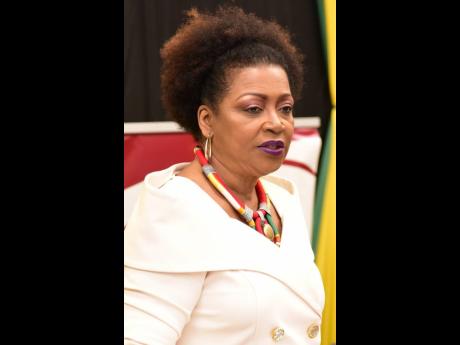‘Clean up the mess you left’ - Shepherd says former colonial powers have a duty to pay reparations
Professor Verene Shepherd says that Jamaica’s thrust to achieve the United Nations Sustainable Development Goals through Vision 2030 will only be a pipe dream if countries such as Spain and Britain do not own up to their responsibility and pay out reparations for centuries of forced labour and decades of underdevelopment as they ravaged Caribbean’s resources to enrich colonial empires.
Shepherd, the director of the Centre for Reparation Research at The University of the West Indies, Mona, told The Gleaner that the current levels of underdevelopment in Jamaica and other Caribbean nations are as a direct result of the legacy of slavery and colonialism.
“I am giving credit to our post-colonial regimes for doing their best, but they need to understand that it’s not grants and loans that we need,” Shepherd said. “Rather, it’s an injection of capital to fix our society. Otherwise, we will not achieve the Sustainable Development Goals and we will not achieve Vision 2030.”
She said that reparation is now framed within the context of the right to development.
“Look at how much of the dollar goes back into to debt servicing. We are saying to Britain and all the others: ‘Fix back Jamaica and the other Caribbean islands so we can really compete with you and truly be partners.’
“You cannot have globalisation with unequal partners, and currently that is the case. Our resources were extracted to fix up your country and now you want to tell us that we need to compete at your level? No, you have to come back and clean up the mess you left,” she said.
Shepherd said research indicates that Russia, Sweden, Switzerland, Norway, Germany, Latvia and Denmark, along with Britain, Spain, Portugal, Netherlands and France, were the main actors in the transatlantic trade in Africans.
The historian and educator reasoned that Jamaica’s march towards achieving Vision 2030 will also require a complete overhaul of the education system, which she said is based on inequality and classism.
“The schools are not equal. That is precisely why people are struggling to get their children into schools such as Campion [College] and so on, because if they go to Trench Town or some other school, the children don’t come out the same way.
“We have a problem and we are not linking those problems to the extraction of our resources to develop Europe and the fact that we are now underdeveloped,” she charged.
Vision 2030 Jamaica is a strategic road map to guide the country to achieve its goals of sustainable development by 2030, and is in line with the inclusive development paradigm of the United Nations that integrates the standards and principles of human rights participation, non-discrimination and accountability.

